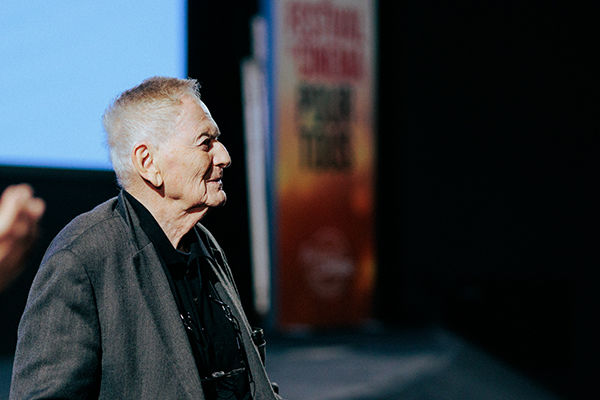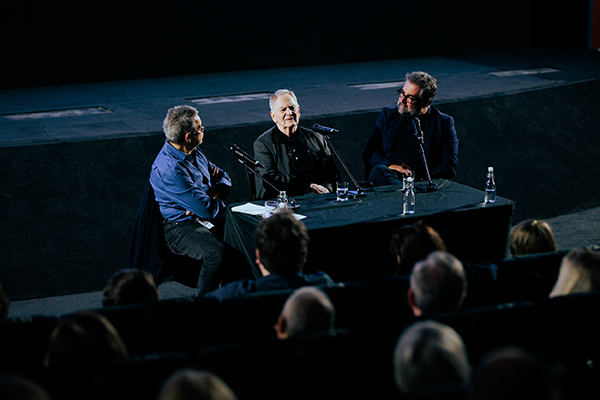Conversation
« Cinema is the only art that can capture a change of expression on a face. »
PostED ON 17.10.2025
István Szabó, the 87-year-old Hungarian filmmaker, considered one of the greatest in Eastern Europe, came to share stories of his youth, his early days in cinema, and the history of his films, which are closely tied to that of his country.

© Léa Rener
THE PAST
When I started out, I began making films that addressed the problems of my generation, a group of university graduates, as we see in Father (1966). But that wasn't enough, because in my opinion, my parents' issues were even more serious. It was difficult to talk about that generation, so I focused on their dreams. Gradually, I went even further back to tackle the plights of my grandparents such as WWII or the Austro-Hungarian monarchy.
FEELINGS
My role consists of telling stories, not playing teacher (laughter)! If the viewer finds something touching in my films, that's perfect. The audience needs to be able to say to themselves, ‘I'm not alone in this problem: that person on screen is in the same situation’. That's my goal: for people to be able to identify with it. In cinema, the emotional side prevails. In almost all my films, love and friendship play a pivotal role and allow me to convey my messages.
GAZE
Even today, cinema is the only artistic medium that allows us to see a human face and, most of all, the changes in expression on that face, based on an emotion. Close-ups are the only way to capture the light in an actor's eyes. And that's something you can't see in the theatre, even from the front row!
ART AND CENSORSHIP
Since my birth in 1938, there have already been six regime changes in Hungary. I have lived through fascism, Stalinism... I was able to make all the films I wanted to in spite of censorship. It's interesting, because every time I thought I was going to get into trouble with the government, I didn't have any problems, and sometimes it was the opposite. My film Father was banned after its national premiere because of the images of Stalin. So I decided to send it to the Moscow Film Festival. They accepted it, I won the Grand Prize, and after that, I was able to show it all over the world!
Propos recueillis par Fanny Bellocq

© Léa Rener

